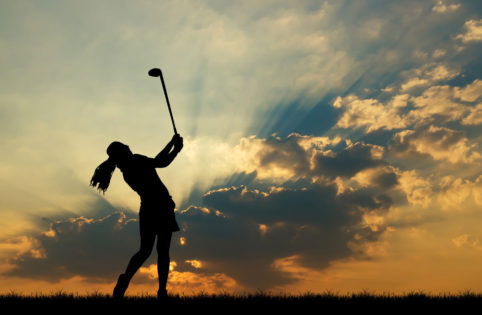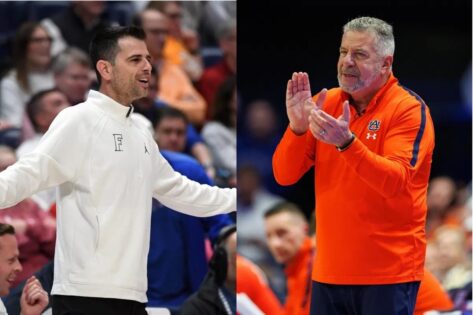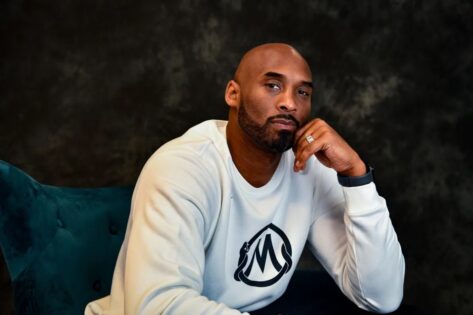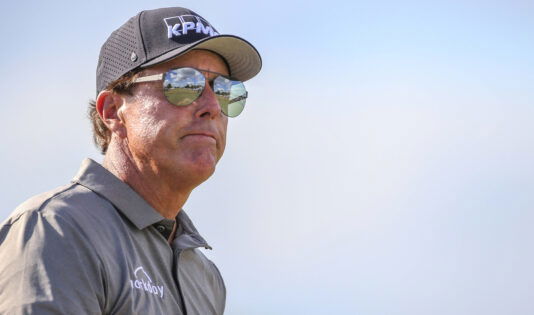It is no secret that golf is a lonely sport. For many players, the travel, the constant grind of tournaments, and the long stretches away from home can feel isolating. For young professionals just starting out, the transition from amateur golf to the tour can be especially brutal. Mariah Stackhouse, a now well-established LPGA Tour pro, can attest to that. Her early years were filled with challenges not just on the course, but emotionally off it.
On the podcast Par-Tee with Tisha Alyn, Stackhouse shared: “When I transitioned to the Tour, it was rough. I played well out of the gate, but I think emotionally, it was more challenging. Like, I was playing well—that was fine—but I think I realized as the season went on, I got lonely,” she admitted, reflecting on her rookie season. The loneliness Stackhouse speaks of is a common experience for many professional athletes, especially in golf, where individual performance takes center stage. The camaraderie of college teams or junior competitions fades away, leaving players to fend for themselves.
Stackhouse’s first year on the LPGA Tour was marked by long stretches of time spent alone, eating meals in the dining hall or the player lounge, without familiar faces around her. “The second year was much better because a lot of my friends from Underground stuff were also on Tour. But I didn’t have as many people that I played with growing up out there with me that first year,” she recalls. “And so, I’m in the dining hall, eating by myself. It was isolating.”
Her rookie season also brought another challenge: She missed out on the host family experience, something many rookies rely on to feel more at home during tournaments. Host families are local households who open their doors to players, often an amateur or junior, during events. They offer more than just a bed; they provide home-cooked meals, a supportive environment, and a sense of belonging in an otherwise isolating sport. This helps not just emotionally, but also to alleviate the financial and logistical burdens associated with travel. Instead of this helpful arrangement, Stackhouse spent much of her time staying in hotels, often dining alone or picking up food and retreating to her room. “For a sport that’s already individual, and once you’re a pro, there’s no team aspect to golf. It’s you and your caddie, and that’s it,” she explained. The isolation became overwhelming, and by the end of the season, Stackhouse was feeling more than just homesick. She was unhappy. Seeking help, she turned to therapy, hoping to work through her emotions. That’s when one of her fellow professionals, retired LPGA star Jane Park, stepped in to lend a hand.
Park, a former LPGA Tour player who has faced her own struggles both on and off the course, has long been a mentor to Stackhouse. In her personal life, Park retired back in 2023 to navigate the complexities of raising a now 5-year-old daughter with epilepsy since she was merely 10 months old, a condition that brings its own set of emotional and logistical struggles. “And then one of my buddies—Jane, actually. Jane Park and Mo Martin kind of adopted me as a little sister out there,” Stackhouse revealed. “They were really sweet and gave me some advice on how to find pieces of home on Tour.”
As a result, Stackhouse began traveling with friends, and soon, she found herself staying with host families, an experience that brought much-needed comfort. “I have host families I’ve stayed with for, like, eight or so years now at certain tournaments,” Stackhouse said, reflecting on how that simple gesture made all the difference. For Stackhouse, finding peace off the course was key. “When you leave the golf course, if you can find something that makes you feel like, you know, ‘I’ve got a little more peace, and I’ve got people around me who care,’ then that makes you feel better.”
Today, Stackhouse continues to push through her own journey with a renewed sense of strength, thanks in no small part to the support she received from Park. Her story, intertwined with Park’s, is a reminder of the power of mentorship in sports and how, sometimes, a little bit of empathy can go a long way. And now, as she faces a different kind of challenge—this time physical rather than emotional—that same support system and inner resolve are helping her navigate the toughest stretch yet.
A season on hold: Stackhouse’s road back from shoulder surgery
For all her growth on and off the course, 2025 has forced Mariah Stackhouse into yet another kind of patience: waiting. The Stanford alum and LPGA pro hasn’t teed it up in competition this season, following shoulder surgery in late March. In a recent Instagram update, Stackhouse revealed she underwent biceps tenodesis on her left shoulder after months of pain and unsuccessful rehab. Despite cortisone injections, MRI scans, and consistent physical therapy, the discomfort only worsened, ultimately prompting her to withdraw from the Epson Tour’s opening event and opt for surgery instead.
Now, four weeks into recovery, Stackhouse is out of the skin. Except in crowded spaces, she has begun active range of motion exercises. She’s kept her cardio up with walking and is back in the gym for lower body workouts. If all goes to plan, she hopes to take full swings by the end of June and be competition-ready by August. For an athlete who’s already fought through emotional solitude early in her career, this latest hurdle is another test of resilience. But if there’s one thing Stackhouse has shown—through both therapy and therapy bands—it’s that she’s not one to go it alone, or give up easily.
The post Facing Epilepsy Woes, Retired LPGA Star Gets Due Credit for Taking ‘Lonely’ Pro Under Her Wing appeared first on EssentiallySports.



